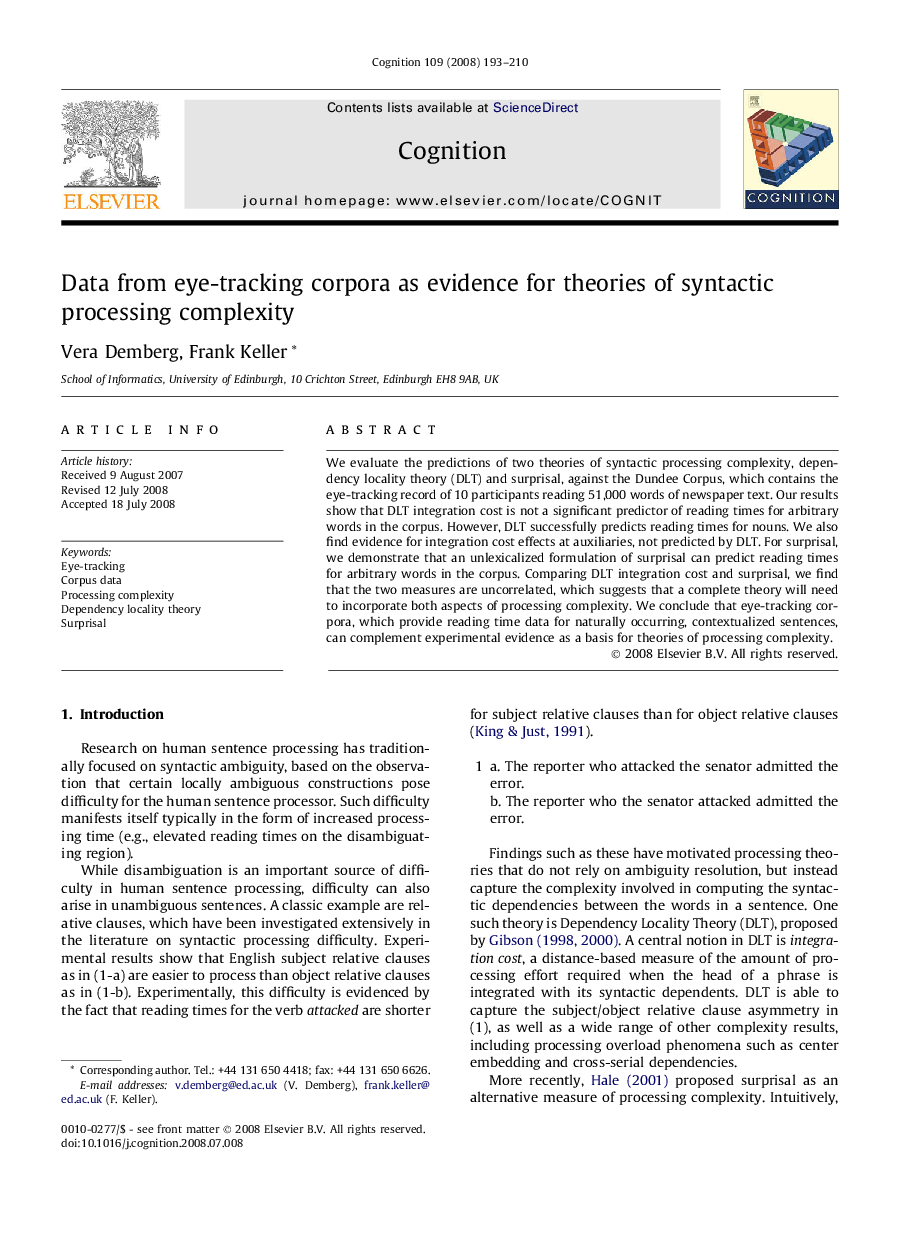| Article ID | Journal | Published Year | Pages | File Type |
|---|---|---|---|---|
| 927268 | Cognition | 2008 | 18 Pages |
We evaluate the predictions of two theories of syntactic processing complexity, dependency locality theory (DLT) and surprisal, against the Dundee Corpus, which contains the eye-tracking record of 10 participants reading 51,000 words of newspaper text. Our results show that DLT integration cost is not a significant predictor of reading times for arbitrary words in the corpus. However, DLT successfully predicts reading times for nouns. We also find evidence for integration cost effects at auxiliaries, not predicted by DLT. For surprisal, we demonstrate that an unlexicalized formulation of surprisal can predict reading times for arbitrary words in the corpus. Comparing DLT integration cost and surprisal, we find that the two measures are uncorrelated, which suggests that a complete theory will need to incorporate both aspects of processing complexity. We conclude that eye-tracking corpora, which provide reading time data for naturally occurring, contextualized sentences, can complement experimental evidence as a basis for theories of processing complexity.
